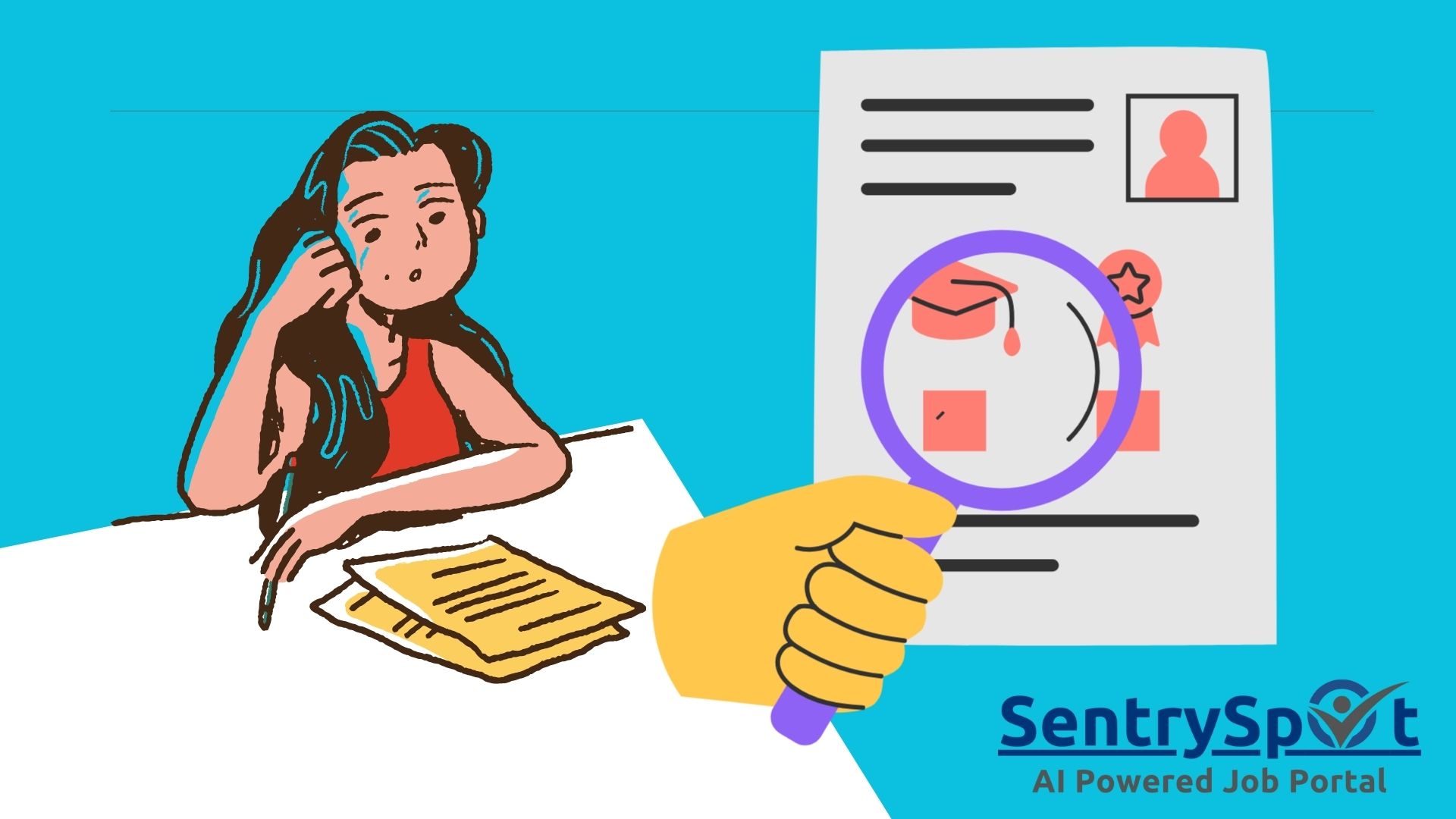The Ethics of AI in Hiring: Navigating the Future with Sentry Spot
In an era where technology reshapes every aspect of our lives, the integration of artificial intelligence (AI) into hiring practices stands as one of the most transformative developments in human resources. Sentry Spot, a leading AI resume builder company, finds itself at the forefront of this revolution. As AI continues to evolve, so too does the ethical landscape surrounding its use in recruitment. This blog explores the multifaceted ethical considerations of employing AI in hiring processes and the steps that Sentry Spot, and companies like it, must take to ensure fairness, transparency, and accountability.
The Rise of AI in Hiring
AI’s role in recruitment is to streamline processes, enhance efficiency, and potentially reduce human biases. AI systems can sift through thousands of resumes, identify key skills, and match candidates with job descriptions more quickly than human recruiters. For a company like Sentry Spot, which focuses on building AI-powered resume tools, the goal is to create a product that not only simplifies resume creation but also adheres to ethical standards.
AI’s capabilities extend beyond just parsing resumes; they can predict candidate success, assess cultural fit, and even automate interview scheduling. This technological advancement holds promise for revolutionizing the hiring process by making it more objective and data-driven. However, with these advancements come significant ethical concerns that need to be addressed to ensure that AI systems contribute positively to the hiring landscape.
The Ethical Challenges of AI in Hiring
1. Bias and Discrimination
One of the most pressing ethical concerns with AI in hiring is the potential for bias. AI systems learn from historical data, which means they can inadvertently perpetuate existing biases. If past hiring practices were biased against certain demographic groups, AI algorithms could replicate these biases, leading to unfair outcomes. For instance, if an AI system is trained on resumes where certain minority groups were underrepresented, it might undervalue candidates from those groups.
Sentry Spot must prioritize developing AI tools that are trained on diverse and representative datasets to mitigate bias. This involves continuously evaluating and updating algorithms to ensure they do not reinforce existing inequalities. Additionally, implementing fairness checks and involving diverse teams in the development process can help address these issues.
2. Transparency and Accountability
Transparency is crucial when it comes to AI decision-making. Candidates should have a clear understanding of how AI systems assess their resumes and make hiring decisions. Without transparency, there is a risk of undermining trust in the hiring process. Sentry Spot must ensure that their AI tools offer explanations for their decisions, making it easier for candidates and employers to understand the rationale behind them.
Accountability is another important aspect. If an AI system makes a flawed decision or exhibits bias, there needs to be a mechanism in place for addressing and correcting these issues. Sentry Spot should establish clear protocols for monitoring AI performance and handling complaints, ensuring that the company remains accountable for the outcomes produced by its tools.
3. Privacy Concerns
The use of AI in hiring involves processing large amounts of personal data. Protecting candidates’ privacy is paramount, and companies like Sentry Spot must adhere to strict data protection regulations. This includes ensuring that candidate data is stored securely, used only for its intended purpose, and not shared without consent.
Sentry Spot should implement robust data protection measures and be transparent with candidates about how their data is used. Clear privacy policies and regular audits can help maintain high standards of data protection and build trust with users.
Best Practices for Ethical AI in Hiring
To navigate the ethical challenges of AI in hiring, Sentry Spot and similar companies should adhere to the following best practices:
1. Diverse Data and Inclusive Design
Develop AI systems using diverse and representative datasets to minimize bias. Incorporate feedback from a broad range of stakeholders, including candidates from various demographic backgrounds, to ensure that the tools are inclusive and equitable. This approach helps create algorithms that are more likely to provide fair outcomes for all candidates.
2. Regular Audits and Updates
Conduct regular audits of AI systems to identify and address any biases or inaccuracies. Continuous updates and improvements are necessary to adapt to changing societal norms and expectations. By staying proactive, Sentry Spot can ensure that its tools remain effective and fair.
3. Clear Communication and Transparency
Ensure that AI decision-making processes are transparent and that candidates have access to information about how their resumes are evaluated. Providing explanations for AI-driven decisions can help demystify the process and build trust with users.
4. Strong Privacy Protections
Implement stringent data protection measures to safeguard candidates’ personal information. Adhere to relevant privacy laws and regulations, and clearly communicate data usage policies to users. Regularly review and update privacy practices to address emerging concerns.
5. Human Oversight
While AI can enhance efficiency, human oversight is essential to ensure ethical outcomes. Recruiters should use AI as a tool to support their decision-making, rather than relying on it entirely. Combining human judgment with AI-driven insights can lead to more balanced and fair hiring practices.
The Future of Ethical AI in Hiring
As AI technology continues to advance, the ethical landscape will evolve as well. Sentry Spot and other companies in the AI recruitment space have a responsibility to stay ahead of these changes and adapt their practices accordingly. Engaging with ethical experts, participating in industry discussions, and staying informed about emerging best practices are crucial for maintaining ethical standards.
Moreover, fostering a culture of ethical awareness within the company is vital. By prioritizing ethics in AI development and implementation, Sentry Spot can lead by example and set a standard for others in the industry to follow.
Conclusion
The integration of AI into hiring processes offers numerous benefits, from increased efficiency to data-driven decision-making. However, these advancements come with significant ethical responsibilities. Companies like Sentry Spot must navigate these challenges carefully, ensuring that their AI tools are fair, transparent, and respectful of candidates’ privacy.
By adopting best practices, addressing biases, and maintaining transparency, Sentry Spot can contribute to a hiring landscape that is not only technologically advanced but also ethically sound. As the future unfolds, the commitment to ethical AI will be crucial in shaping a recruitment process that is equitable, just, and inclusive for all.
In embracing these responsibilities, Sentry Spot can not only enhance its own reputation but also pave the way for a more ethical and equitable future in AI-driven hiring.




